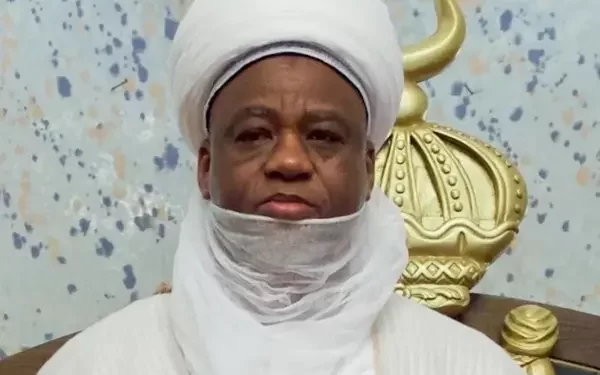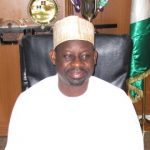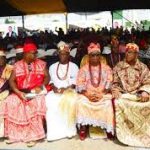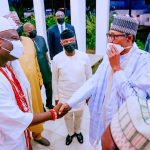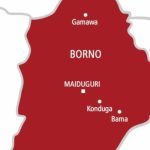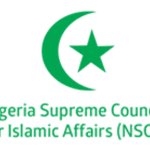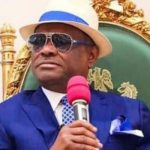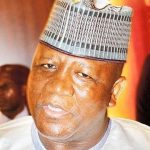The Nigerian Supreme Council For Islamic Affairs has called on Governments at all levels to accord the holders of traditional titles and institutions the required respect they deserve.
The NSCIA said this should especially be so when those traditional titles are combined with Islamic leadership.
This was part of the communique issued by the NSCIA through its Secretary General, Professor Ishaq Oloyeded, after its expanded General Purpose Committee meeting on June 30th at the National Mosque in Abuja.
The NSCIA said this will ensure the protection of the Cultural and Religious Heritage of the Country.
The Council also took a critical look into the Imam and Obaship tussle in Ogbomosho calling for calm and also setting up a committee under the leadership of its Secretary General, Ishaq Oloyede, to mediate and report back to Council.
The Council after careful deliberation on the vexed issue of Genetically Modified Organisms set up a committee of scholars and scientists to investigate and take a stand on the issue.
Other topics that were deliberated upon by the council include the 2024 Hajj Operation, the Security situation across the country, the issue of Fatwa on bride price and Others.
Read Full Communique Below…
NSCIA/HQ/PRS/070 Date: 30th Dhul-Hijjah 1445 AH 6th July 2024
BEING THE COMMUNIQUE OF THE NIGERIAN SUPREME COUNCIL FOR ISLAMIC AFFAIRS (NSCIA) AT THE 9TH EXPANDED GENERAL PURPOSE COMMITTEE (EGPC) MEETING HELD ON SUNDAY JUNE 30, 2024, AT THE CONFERENCE HALL OF THE NATIONAL MOSQUE, ABUJA
Preamble
The meeting of the Expanded General Purpose Committee (EGPC), which was attended by most of its members, was, as usual, presided over by His Eminence, Alh. Muhammad Sa’ad Abubakar, CFR, mni, the Sultan of Sokoto and President-General of NSCIA, assisted by the two Deputies President-General, His Royal Highness, the Shehu of Borno, Alh. Abubakar Ibn Umar Garbai El-Kanemi, CFR and Alh. Rasaki Oladejo, FCS.
Prominent among the traditional rulers at the meeting were their Highnesses, Emir of Zazzau, Amb. Ahmed Nuhu Bamalli, CFR; Etsu Nupe, Alh. Yahaya Abubakar, CFR; Emir of Kazaure, Alh. Najib Hussaini Adamu, CON; and Emir of Gummi, Justice Lawal Hassan Gummi (Rtd), OFR.
Other members at the well-attended meeting included present and past senior members of both the bench and the bar, current and former ministers, heads of agencies both private and public, captains of industries and respected scholars at the various strata of the educational system.
Resolutions
At the end of the meeting, the following resolutions were passed:
Members of the EGPC reiterated their absolute confidence in the President General and Sultan of Sokoto for his exemplary leadership and committed service to Islam and the Nigerian Muslim Ummah, and particularly applauded his bridge-building efforts across regional and religious divides for national peace and cohesion.
The meeting referred to the General Purpose Committee (GPC), under the chairmanship of the Secretary-General, the synthesisation and articulation of the general feelings of members about the perceived disrespect to the leadership of the Ummah by certain authorities. The GPC was then mandated to act on the matter on behalf of the EGPC and the General Assembly.
While expressing grief over the upsurge of terrorist attacks in some parts of the country, the meeting reiterated the position of the NSCIA that government at all levels, particularly at the local government level, should re-energise intelligence gathering as a complement to the laudable efforts of our armed forces and security agencies.
It was also resolved that insecurity is by far the most existential matter of concern to the Nigerian nation as it also poses a great danger to food security in the country. Therefore, the meeting urged the Federal Government to, as a matter of urgency, increase the current laudable tempo of curtailing insecurity in the country.
The meeting applauded the efforts of the Federal Government thus far, especially on alleviating poverty and food shortage in the country and urged government at all levels to address the high cost of living occasioned by increased costs of food and energy.
Members expressed diverse opinions on the appropriateness or otherwise of Genetically Modified Organisms (GMOs) in Nigeria. A committee of scientists and scholars was set up to consider, among other sources, the Nigeria Inter-Religious Council (NIREC)’s panel submission on GMOs and advise the Council on the appropriateness or otherwise of GMOs.
The need was reiterated for establishing an efficient channel of communication between the Government and the NSCIA, as the highest representative body of the Muslim Ummah, in order to facilitate a better understanding of and consequently adequate support for government policies and programmes. A case in point was the misconstrued outstanding obligation of the Federal Government towards 2024 Hajj depositors for foreign exchange prior to the increase in the exchange rate to honour the obligation to which the government had been committed before the increase. The honouring of such an obligation for which the Ummah was very grateful was misconstrued in some quarters as unwarranted favour to the Ummah.
The meeting also ratified the report of its Fatwa Committee on controversies in determining the minimum amount payable as dowry (sadaq) and reaffirmed that it is ¼ Dinar, which today is equivalent to about N118,000, or any amount mutually agreed by the couple or/ and their guardians, irrespective of whether or not it is lower or higher than the #118,000.
The meeting also viewed the Imamship/ Obaship tussle in Ogbomoso land as being of serious concern and set up a committee under the Secretary-General to look into it and report back to the Council.
In view of the serious concerns raised by some important stakeholders on the conduct of Hajj 2024, the meeting resolved to await the formal report on the exercise from the National Hajj Commission of Nigeria (NAHCON). The meeting also approved the convening of a National Hajj Summit to discuss the matter.
The meeting offered prayers for the peace, stability and unity of the country, and for Allah’s guidance for the country’s leaders and protection for the citizens.
Addendum
Arising from the mandate in 2 above, the GPC met on Tuesday, July 2, 2024 under the leadership of the Secretary-General and resolved that:
the NSCIA is strongly advising government and political leaders at all levels to continue to accord the traditional institution and its holders the due respect that they deserve, especially where such is combined with Islamic leadership. This is in order to ensure the protection of our cultural and religious heritage for sustainable peace and national development. The Muslim Ummah in Nigeria, long before independence, unanimously resolved to entrust its leadership to an established Islamic institution that Muslims all over the country believe would always command the desired respect and attract the highest regards of reasonable all and sundry. It, therefore, behoves the custodians of such institution to also reciprocate by acting in a manner that shows, both in words and deed, respect for Islam, its institution and the feelings of the generality of the Ummah. Any iota of disrespect to the institution is a direct affront on the Faith and its adherents.
Signed.
Prof. Is-haq Oloyede, CON, FNAL
Secretary-General
For and on behalf of the Nigerian Supreme Council for Islamic Affairs

